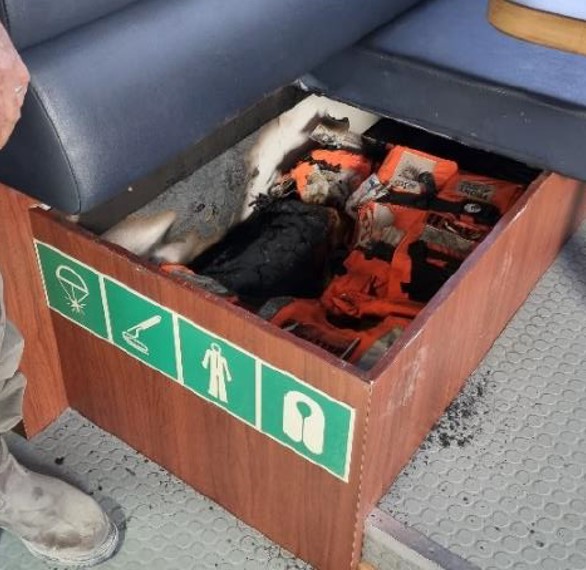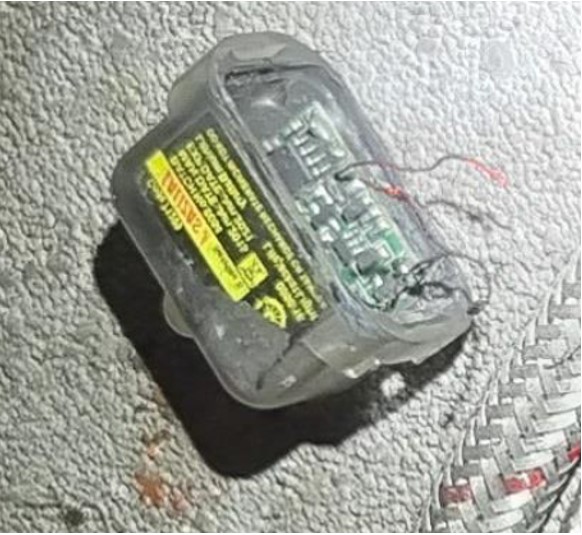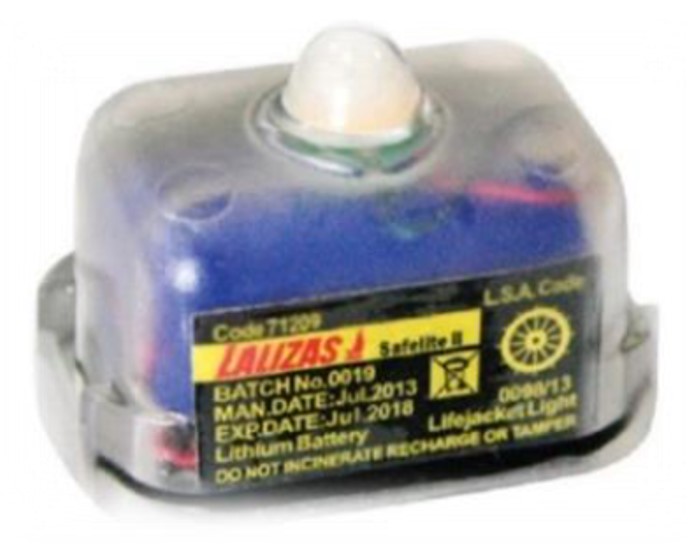Lifejacket battery caught fire
During an inspection on a vessel in cold lay-up, the lifejackets stored underneath a sitting bench in the wheelhouse were found burned and melted. No-one was harmed; apart from the jackets, nothing was damaged.



What went wrong?
A Lithium battery (3.6v) had exploded in one of the self-igniting lights. As the bench was in a properly closed position, without any gaps, the fire could not spread due to a lack of oxygen. Therefore the fire was not detected and did not activate a fire alarm, as the smoke was contained inside the storage compartment. Investigation showed that the battery of the “Lalizas 71209” life jacket light had expired five months earlier.
A possible cause could be that this battery was exposed to moisture before the lay-up period and water ingress affected the battery content after the lifejacket was put back in storage.
Lessons and actions
- Store such equipment in a secure, dry and cool place away from flammable materials;
- Keep batteries of any kind away from metal objects to avoid short circuit between the terminals;
- Lithium batteries in your work place:
- Assess where Lithium batteries are present and check, if possible, the condition of the battery and cover;
- Verify the expiry date of the battery;
- Regularly inspect batteries of lifejacket lights and other devices like radios as per planned maintenance schedule;
- If batteries are expired or damaged, remove them and dispose of them properly;
- For laid-up vessels, it may be appropriate to consider whether or not to remove Lithium batteries and other hazardous materials from vessels before going onto lay-up.
Members may wish to refer to:
- Lithium batteries: Fire following the failure of a helicopter start power unit
- LTI: Severe burn from short circuited Li-Ion battery
- PP3 9V battery explosion
- Potential engine room flooding: maintenance and equipment failure issues on a laid-up vessel
- For want of a watchman the ship was lost [a ship in lay-up burnt down]
Safety Event
Published: 10 January 2022
Download: IMCA SF 01/22
IMCA Safety Flashes
Submit a Report
IMCA Safety Flashes summarise key safety matters and incidents, allowing lessons to be more easily learnt for the benefit of all. The effectiveness of the IMCA Safety Flash system depends on Members sharing information and so avoiding repeat incidents. Please consider adding [email protected] to your internal distribution list for safety alerts or manually submitting information on incidents you consider may be relevant. All information is anonymised or sanitised, as appropriate.
IMCA’s store terms and conditions (https://www.imca-int.com/legal-notices/terms/) apply to all downloads from IMCA’s website, including this document.
IMCA makes every effort to ensure the accuracy and reliability of the data contained in the documents it publishes, but IMCA shall not be liable for any guidance and/or recommendation and/or statement herein contained. The information contained in this document does not fulfil or replace any individual’s or Member's legal, regulatory or other duties or obligations in respect of their operations. Individuals and Members remain solely responsible for the safe, lawful and proper conduct of their operations.
